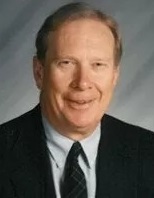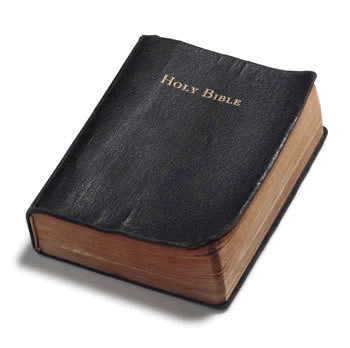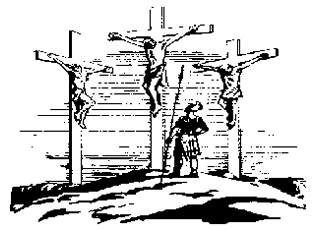We must recount a number of little known, but significant, events in order
to understand why there is a link between Westcott and Tauler, a medieval
German mystic, and how we know of that link. There are actually two
biographies of Brooke Foss Westcott, one by his son, Arthur, from 1903 and
one by Joseph Clayton, Bishop Westcott, published in 1906. Clayton's book
was one of a series of biographies titled Leaders of the Church 1800-1900,
edited by George William Erskine Russell (1853 - 1919). The men he chose to
write about for this series were Keble, Liddon, Church, Gladstone, Maurice,
and Westcott. Keble, Liddon, Church, and Gladstone were leaders of the
Anglo-catholic Oxford Movement. Gladstone made Liddon Canon of St. Paul's.
Maurice and Westcott were mystics but favorably disposed toward Anglo-catholics.
George W. E. Russell was a Liberal MP for Aylesbury from 1880 to 1885. and
for Biggleswade from 1892-1895. Under William Ewart Gladsttone he was
Parliamentary Secretary to the Local Government Board from 1883 to 1885 and
as Under-Secretary of State for India from 1892 to 1894. He was an Alderman
on London County Coucil from 1889 to 1895. He was appointed a Privy
Counsellor in 1907, and held the honorary degree of LLD from St Andrews
University. He was very close to Gladstone whose efforts made revision
possible as A Testimony Founded For Ever shows. Russell was an
Anglo-catholic. Henry Liddon, whose name appears at the beginning of
Russell's series which contains Clayton's biography of Westcott, was a
Tractarian. In 1870 Liddon was made Professor of the Exegesis of Holy
Scripture at Oxford. These two appointments gave him extensive influence
over the Church of England.
With Dean Church he restored the influence of the Tractarian school, and he
succeeded in popularizing the opinions which, in the hands of Pusey and
Keble, had appealed to too many thinkers and scholars. Liddon was a friend
of Lewis Carroll, who accompanied him on a trip to Moscow where Liddon made
approaches to leading Russian Orthodox clergy, seeking closer links between
them and the Church of England.
Liddon was a patron of Charles Gore, author of Lux Mundi, which argued, as
did Westcott (see p. 229 of A Testimony Founded For Ever), that the
Incarnation was the central tenet of Christianity. Westcott was an advocate
of higher criticism and of Anglo-catholicism. It is an interesting
commentary on George William Erskine Russell that he chose Clayton to write
about Westcott. From the English Dictionary of National Biography one of the
references to Westcott at the end of the article on him was Clayton's
biography. Erskine Russell was a student of Westcott's at Harrow, which was
Westcott's first job after Trinity College.
I think Russell knew Clayton's background and point of view. For example
Russell wrote Saint Alban the Martyr, Holborn: a History of Fifty Years.
(Milwaukee, Young Churchman Co., 1913). This book is a history of the
Anglo-catholic Church of St. Alban's founded in a slum in the west end of
London in 1863. The first priest was Father Mackonochie. The church was
ritualistic and liberal, essentially Catholic, and its leaders were
socialistic.
Clayton was socialistic enough to write favorably of Arthur Henry Stanton.
The title is Father Stanton of St. Alban's, Holborn; a Memoir. (London,
Wells, Gardner, Darton & Co., 1913). Stanton was an assistant to Father
Mackonochie at the church of St. Alban. Father Stanton is quoted as telling
an audience, "As the only thing I care much for is Socialism, I am a very
dangerous lecturer." He strongly sympathized with the Paris Commune of 1871,
on occasion referring to himself, only half in jest, as "Citizen Stanton."
The "clubs" of the Commune were the inspiration for his formation of a
Brotherhood of Jesus of Nazareth for workingmen and boys. Mother Kate
(Warburton) of the Sisters of St. Margaret writes in her Memories, "In those
late [eighteen] sixties and early seventies there was a strong atmosphere of
revolutionary socialism about, with which many of the very keen, ardent,
earnest young people of that day were strongly impregnated, Father Stanton
and Dr. Littledale, specially.”
From 1906 to 1907, just after he had completed Bishop Westcott, Clayton was
editor and owner of The New Age, a London weekly. He had published, for
example, articles by Edward Carpenter, the homosexual, vegetarian,
socialist, and theosophist. In 1907 George Bernard Shaw of the Fabian
Society and Alfred Richard Orage bought the financially struggling paper
from Clayton and continued its socialist tradition. Shaw contributed 500
pounds of the price and a friend and patron of Orage from Leeds, the
Theosophist banker Lewis Alexander Wallace, put up the other five hundred.
W. B. Yeats was also present when the decision to buy the paper was made.
Orage was also a theosophist from Leeds and had known Clayton for years;
both had been members of the Independent Labour Party there. Orage was a
student of Plato, Nietzsche, and the Bhagavad-Gita. Orage said, and this
shows his pantheism:
“The universe is the body of God; it is the neutralizing force of the Sun
Absolute, the manifestation of the interaction of the positive and negative
forces of God. We live in the body of God, are made in the image of God …The
universe as a conscious being is the third dimension of time…Humanity is the
mind of God and the passion for understanding the meaning and aim of
existence.”
In 1903 Orage had formed the Leeds Art Club, and Shaw, Carpenter, and Yeats
all had spoken at its meetings. All these people were acquainted with the
works of Annie Besant and Madame Blavatsky. We can now better understand why
it was Clayton who wrote about Bishop Westcott.
Volume I of the paper, under Orage, had articles by Florence Farr, who was
more quoted than any other contributor. She was also active in Theosophical
circles, a friend of Yeats as well as Shaw, and a follower of Madame
Blavatsky. She defined marriage as “a profession in which the amateur
commands a higher price than the skilled artist,” and discussed the
advantages of Eastern sacramental prostitution. And in the paper Havelock
Ellis, the utopian socialist physician, advocated a reform of the laws on
homosexuality
The first edition, of May 2, 1907, contained also the following letter from
Clayton to the new editors:
Dear Sirs,-Will you allow me to express my thanks to those readers who with
kindly generosity have subscribed some money for the late Editor. It is no
small recompense for the financial loss to win this good feeling from those
who only know me through the columns of THE NEW AGE. Personal friends did
not suggest the fund, I note, and did not subscribe to it: which is quite as
it should be-Yours faithfully, JOSEPH CLAYTON.
Joseph Clayton (1868-1943) wrote a number of other books which give insight
into the direction of his thinking:
1. Hypnotic Leeds: Being Essays on the Social Condition of the Town,
1894. This small 68 page book was written during the time Clayton was a
colleague of A. R. Orage in the Independent Labor Party in Leeds. It was
published by the Leeds and County Co-operative Newspaper Society. It is a
compilation of 12 essays on socialism by Clayton, Orage, Albert Marles, A.
Halliday, Herbert Hunter, Tom McGuire, and Edward S. Pickard. Marles was
editor and wrote an introductory paragraph to each essay. The book quotes
Walt Whitman, Emerson, and Thoreau frequently. As one might expect, Orage,
the theosophist, quotes from Zanoni, the Rosicrucian novel of the early
theosophist Edward Bulwer-Lytton. One article by Marles states that man is
an animal, a biped, so classed by science, and that marriage laws were
invented by men, rather than by the God of the Bible. Another by Edward
Pickard discussed the ancient history of Leeds. He said that an attitude
hidden within men and in Nature is what men worship as God, whether called
religion, faith, or superstition, and that we must rid ourselves of beliefs
we hold because the Bible teaches them. He quotes Browning: “Truth is within
ourselves.” He quotes from the Buddhist Book of Golden Precepts, translated
by H. P. Blavatsky: “Thou canst not travel on the Path before thou hast
become that Path itself.” In other words man himself is God. So we see the
nature of the company Clayton joined in his early days in Leeds. George
William Erskine Russell would have known of it before he assigned Clayton to
write about Westcott, the founder of the Christian Social Union.
2. Father Dolling, a Memoir, 1902. Dolling was a 19th century
Anglo-catholic and socialist.
3. Bishop Westcott, 1906, the second and hitherto unreported biography.
4. Robert Owen: Pioneer of Social Reform, 1908. Owen was a famous 19th
century English utopian socialist who founded the utopian communities of New
Lanark in Scotland and New Harmony in Indiana. Owen was also a spiritualist.
5. Socialism for Bishops, 1909.
6. The True Story of Jack Cade, 1909. Jack Cade led a peasant's rebellion
in England in 1450.
7. Leaders of the People: Studies in Democratic History, 1910. In
this book Clayton discusses Ernest Jones and the Chartists in England,
1838-68. Westcott saw some of the Chartist riots as a young man.
8. Luther and His Work, 1937. Clayton, Joseph, Joseph Husslein, SJ,
editor. The book analyzes Luther's work and concludes that Protestantism
will pass away, while the permanence of the Church is guaranteed by God. F.
J. A. Hort and Phillip Schaff said the same thing.
9. Pope Innocent III, 1940. Innocent III was the pope who expanded
the temporal power of the papacy and slaughtered the Albigensians at the
beginning of the Inquisition. The introduction to this book was written by
the same Jesuit, Joseph Husslein, who edited the series of which Luther and
His Work was a part.
In Bishop Westcott, by Clayton, there are several references to Stuart
Headlam, the socialist protégé of F. D. Maurice. Father Stanton was a member
of the council of Stuart Headlam's church. In the 1870's, there was a fusion
of early Oxford theology, Ritualism, and the Christian socialism of F. D.
Maurice. The key figure in the fusion was Headlam. Headlam is mentioned on
page 262 of my book, A Testimony Founded For Ever. Westcott's socialism is
well documented by Clayton's biography and by my book as well.
Clayton shows that it was Westcott who made the suggestion to A. P. Stanley
that a communion service for the translators be held at Westminster Abbey
before the beginning of revision. Westcott would have known that G. Vance
Smith, the Unitarian, would be invited, even though it was Stanley who chose
him for membership on the revision committee. He should have forseen the
outcry against Smith. But I think he did not care about it, and his
resistence to excluding Smith from the committee I think confirms his
approval of him. Westcott himself was prepared to resign rather than give in
to the demands that Smith be removed.
The most interesting, and until now unpublicized, things about Clayton's
book are the references to Father Dolling, Johannes Tauler, and Rupert of
Deutz. Dolling was a priest of the Oxford Movement who was educated at
Harrow and Trinity College when Westcott was teaching at those institutions.
Clayton was Dolling's biographer as well. Dolling was a close friend of
George Tyrell, the Jesuit priest, whose theology was very liberal. Westcott
was not troubled by Dolling's Catholicizing, socialist views, and in 1895
Dolling addressed the Christian Social Union, which was founded by Westcott.
Rupert of Deutz and Tauler were medieval German mystics. On page 41 of
Bishop Westcott Clayton identifies Westcott as a mystic, and there is a
quote from a letter of December 4, 1899 from Westcott to J. Llewelyn Davies
which mentions Tauler. This quote also appears in Arthur Westcott's
biography, but the reference to Tauler is omitted. From Vol. II p. 309 of
Arthur Westcott's Life and Letters of Brooke Foss Westcott we read:
“…I don't think that I have ever used the word 'mystics'; it is so
hopelessly vague, and it suggests an esoteric teaching which is wholly
foreign to the Christian. But from Cambridge days I have read the writings
of many who are called mystics with much profit. Everyone who believes that
phenomena are signs of the spiritual and external receives the name; and to
believe in the Incarnation involves this belief, does it not? After all, the
first chapter of Genesis is the Protoevangelium.”
But the letter as it appears in Bishop Westcott by Clayton, designated by
George William Erskine Russell to write the book, actually reads:
“I don't think that I have ever used the word 'mystics'; it is so hopelessly
vague, and it suggests an esoteric teaching which is wholly foreign to the
Christian. But from from Cambridge days, when I delighted in Tauler, I have
read the writings of many who are called mystics with much profit. Everyone
who believes that phenomena are signs of the spiritual and external receives
the name; and to believe in the Incarnation involves this belief, does it
not? After all, the first chapter of Genesis is the Protoevangelium.”
In Arthur Westcott's biography the letter of Westcott to Davies has no
ellipsis between “days” and “I” to indicate the omission. But the letter as
quoted begins with an ellipsis, and there is an ellipsis in the following
letter on page 310. The most disingenuous thing, however, is the first
sentence in the letter to Davies where Westcott says he never even used the
word “mystics.” I believe it is clear from Westcott's own writings, as
described that he thought as a mystic even if he did not use the word. He
did admit that mystic suggests an esoteric teaching. I believe that here
Westcott used the term phemonena in its spiritualistic sense to represent
things such as thought transference or automatic writing or mystical
communion with the dead. See pages 309 and 310 from Arthur Westcott's
biography of his father. See also my book, A Testimony Founded For Ever,
Chapter 11, “Brooke Foss Westcott, Trinity College Mystic.” In that chapter
Westcott is shown to attempt to alter esoteric teachings just enough to make
them acceptable to the Anglican Church and not foreign to Anglican
Christians.
Tauler was a mystic and a disciple of Meister Eckhart. The omission of any
mention of Tauler by Arthur Westcott anywhere in his biography is a
significant one, and I believe there are numerous other omissions of
portions of quotes or of certain letters which serve to disguise Westcott's
true views. I wonder whether we will ever know all that we need to know
about Westcott.
Westcott did delight in Tauler, as Joseph Clayton says. Tauler said that man
was one essential being with and in God. He wrote that “Man is so completely
deified that everything he is and does, God does and is in him…the soul
becomes completely God-colored, divine and Godly.” Tauler substituted for
the immanence of God the Platonic idea of the emanation of the world from
God. Westcott's views were very similar. Tauler's reading of John 1:3,4 was
“what has been created was life in God,” just as Valentinus had put it. .
Westcott got this reading into the margin of the ERV of 1881. I suspect he
didn't have the votes to get it into the text proper. The reading now lies
included in the Nestle-Aland Greek text, not in the margin or footnote. The
footnote in the critical text admits that Valentinus is the source of the
reading. From page 273 of A Testimony Founded For Ever:
“Westcott introduced at John 1:3, 4 into the margin of his Greek text and of
the ERV the reading: 'Without him was not anything made. That which hath
been made was life in him.' Tregelles had recognized this as Valentinian in
origin, and the Nestle-Aland Greek N.T. confirms him and has put the reading
into its text, where it now lies like a ticking time bomb. It supports
Westcott's monistic concept of the One Life, the life of Christ, of which
everything is a small part, and proves Westcott's familiarity with
Valentinian gnosticism beyond doubt. If the only thing made was life in
Christ, and everything is a part of it, then God is dualistic, both good and
evil, as well as immanent. One wonders how long it will be before the editor
of some future version becomes bold enough to put this pantheistic, or
panentheistic, reading into an English version.”
So it seems that Tauler may have been one of the mystical medieval links
between Westcott and Valentinus. This omission by Arthur Westcott should be
carefully marked and remembered by all. Arthur Westcott's omission of his
father's statement about Tauler here was a silent piece of deceit in my
opinion.




